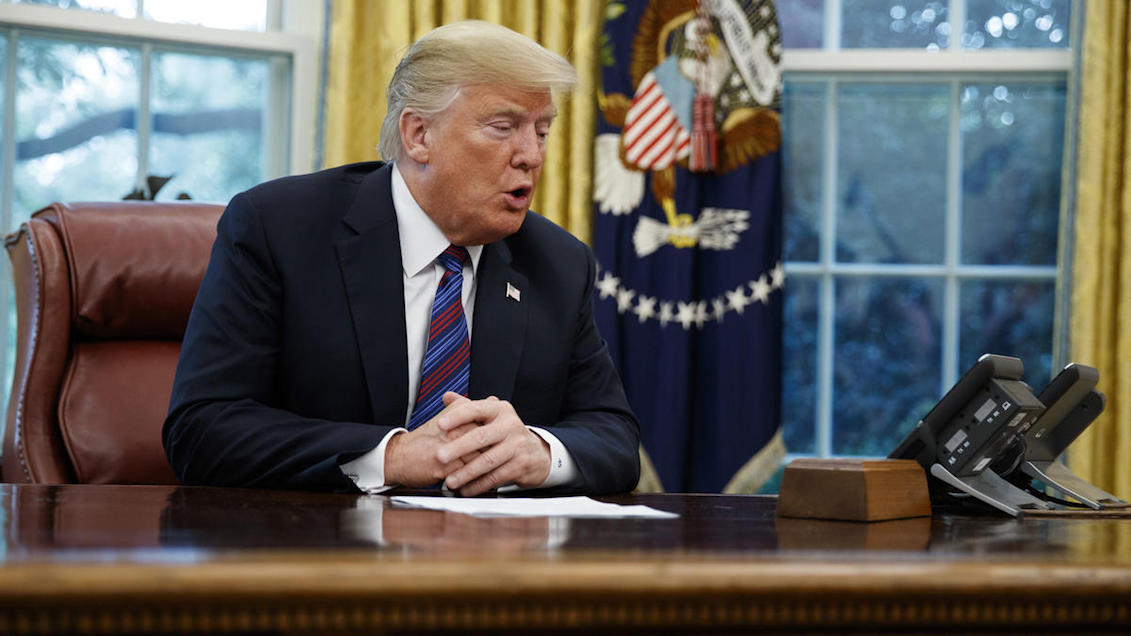
NAFTA: Much ado about nothing
After months of failed negotiations, bilateral threats and widespread instability regarding the future of trade between the United States, Canada, and Mexico,…
Mexico and the United States have managed to agree on one thing: the North American Free Trade Agreement (NAFTA) must be signed before the inauguration of the new Mexican president, Andrés Manuel López Obrador.
For many, this week's surprise has been that, out of the blue, U.S. and Mexico's negotiators seem to have reached an agreement regarding the restructuring of NAFTA after months of failed negotiations and threats by both sides.
It seems that the possibility that the new Mexican populist leader would be more intransigent with respect to U.S. pressure has resulted in a hasty closure of negotiations that could have important consequences for all the countries involved.
On Monday, Donald Trump said he had reached a new agreement with his counterpart Enrique Peña Nieto that would imply a possible breach of NAFTA, especially if Canada doesn’t accept the new terms.
According to The Guardian, Trump declared the termination of the current treaty, the signing of a new one, and the possibility of a separate bilateral negotiation with Canada; that is to say, the United States will tear the paper to repair it with adhesive tape.
"The agreement with Mexico requires 75% of a car’s value to be manufactured in North America, up from NAFTA’s current level of 62.5%,” Reuters explained. "It would also require 40% to 45% of the car to be made by workers earning at least $ 16 per hour."
According to specialists, the U.S. move was based on bilateral negotiation with one of the countries before facing the other, taking advantage of economic positioning.
RELATED CONTENT
"In the abstract, the theory behind President Donald Trump’s renegotiation of NAFTA makes sense," Tyler Cowen explained in his column for Bloomberg. "His view is that multilateral trade agreements require the approval of too many parties, take too long to negotiate and end up watered down. So the U.S. might do better with bilateral negotiations. America might even have more bargaining power, due to its size and its resulting ability to dictate terms."
However, who would really win from this negotiation would be the excluded country: Canada, leaving behind Mexico, who is in a fundamental political transition.
In principle, the U.S. Congress must approve any agreement for a new pact, and it is likely that the Trump administration will press for its signature before the midterm elections in November. Likewise, the original agreement contemplates that all the included parties must agree with the new negotiation statutes.
Considering that President Trump's threats are intended to impose taxes on automobile imports and that Canada doesn’t have large vehicle brands in its domestic production, those who will really be affected will be consumers of vehicles in the United States.
Similarly, "Mexico’s hourly average factory wage is less than $3 per hour, while Canada’s are around $19.28," explained Quartz. "So that shift is likely to restrict Mexican imports to the U.S., not Canada’s.”
In one way or another, the supposed "great day for trade" announced by President Trump could be a strong blow to the economy of states like Virginia, whose largest export market is Canada, putting at risk "millions of American jobs" as Rep. Don Beyer stated.
Considering Canada is one of the most important export markets for around 36 states in the country, President Trump's insistence on excluding his allies from the negotiating table will only facilitate the reinforcement of players like China in the world trade market.











LEAVE A COMMENT: